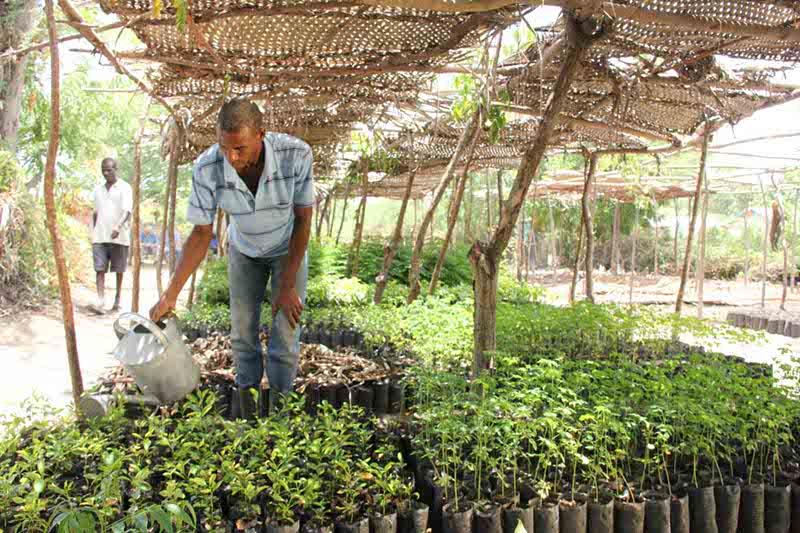
Traditional corporate philanthropy, as the average consumer has come to know it over the past several decades, consists of making donations to charities in order to create positive societal impact, while engendering goodwill among key stakeholders like consumers, shareholders, advocacy groups and employees.
While such contributions are well-intended and not to be dismissed, this approach brings with it certain risks -- namely that a promising project relying upon a company’s donation can go by the wayside if and when the funding runs out and there are no resources or people left on the ground to maintain it. The corporate philanthropy of tomorrow seeks to be more strategic and focused on issues material to the business – where brands are highly engaged, so as to create lasting, collaborative partnerships and generate impact that can stand the test of time.
https://player.vimeo.com/video/140175174
KOMBIT: THE COOPERATIVE from Impact Farming on Vimeo.
"Kombit: The Cooperative," a film by Found Object, documents how one company, in partnership with a local nonprofit, sought to test whether this type of engagement could truly be successful in practice. The film shares the journey of a five-year collaboration between Timberland and the Smallholder Farmers Alliance (SFA) to reforest Haiti. This creative private-public partnership has not only reached its original goal of planting 5 million trees, but it has also transformed into a 3,000-member smallholder farming cooperative that is now entirely self-financed and self-sustained.
When a massive earthquake struck Haiti in 2010, just as this project was getting underway, Timberland questioned whether it should continue on with the plan as is, or put its resources toward immediate disaster relief instead.
Two-thirds of Haiti’s working population subsists on small-scale agriculture, and the earthquake had put many smallholder farmers’ land in shambles. This was adding insult to injury, as Haiti was already facing serious challenges including deforestation, soil erosion and lack of local farming infrastructure support many Americans take for granted (think: agricultural extensions). Haiti also has only 1.5 percent of tree cover left, making it one of the most deforested countries in the world.
Trees are crucial to farmers’ livelihoods because they provide a living border and shade for their crops. So, Timberland decided that by rebuilding the landscape through the restoration of tree cover, farmland productivity would increase along with household income over time. With long-term earthquake recovery in mind, Timberland stayed the course.
Paying it forward, farmer style
The next question became: How do the partners get small-scale farmers to plant trees? SFA co-founders Hugh Locke and Timote Georges addressed this question during a Q&A session and viewing of the documentary at SXSW Eco 2015, saying the organization realized it needed to devise a way to give trees value in order get the farmers invested.
“When Hugh and Timote came to us with their idea, it was based on paying the farmers to plant trees," said Margaret Morey-Reuner, director of strategic partnerships, business development and values marketing at Timberland. "We said, 'That all sounds well and good, but what happens when the funding runs out?' If we could develop a sustainable model, then we would be on the right path to address the deforestation problem in Haiti and other places throughout the world."
This led Timberland and SFA to focus efforts on providing a way for farmers to earn high-quality seeds for their crops, farming tools and training.
“Farmers have a lot of opportunities ... But there is no structure to help them use what they have. We need to teach them what to do and why,” Georges said.
How it works
Farmers volunteer to manage a network of 19 nurseries that grow a million trees per year. In exchange, farmers are given training, crop seeds, seedlings and tools needed to restore tree cover, while increasing their own crop yields and profit. Seeds are returned to the seed bank, and proceeds are used to train and provide seeds and tools for even more farmers during the next planting season.
This sustainable agroforestry model produces tangible results. Since 2010, 3,200 farmers have increased their farmland productivity by an average of 40 to 50 percent, thereby increasing household incomes by up to 40 percent. Associated benefits have also come about, including increased access to healthcare and education; it’s estimated that an additional 3,400 school children of families who are SFA members have been placed in schools since the program began.
Morey-Reuner cautioned companies exploring this type of collaboration to do so thoughtfully:
“You must be in it for the long-haul because you may not see return for your business in the short term.”
Next on the horizon
Timberland, SFA and the Clinton Foundation are teaming up to develop a sustainable export model for moringa, a little known 'super food' plant. Through U.S. brand Kuli Kuli, a SFA women’s cooperative in Haiti will process the leaves into powder, which will then be exported to the U.S., made into Moringa Green Energy Shots and sold at Whole Foods stores starting in January 2016. Timberland is also exploring replicating the Kombit model with projects around rubber and cotton, both commodities key to Timberland's supply chain and that of its parent company, VF Corp.
“’Kombit’ is a Haitian Creole word for ‘a community working together toward a common goal,’” Georges explained. “This is exactly what happened over the last five years in Haiti as a result of Timberland’s vision. The farmers have found their voice; they have renewed their passion; they feel completely empowered and are eager to continue building the cooperative. I personally can’t wait to see what we do next.”
Visit www.KombitFilm.com to view the film. All net proceeds from the film will go to Impact Farming to benefit SFA in Haiti.
Image credits: Timberland, used with permission
Lesley Lammers is a freelance sustainability consultant and journalist, focused on the intersection between the environment, food, social impact, human rights, health and entrepreneurship.














